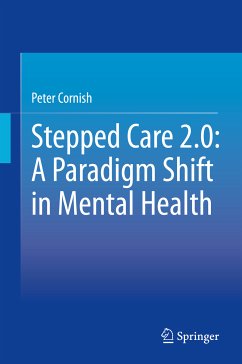
Behavioral Clinical Trials for Chronic Diseases (eBook, PDF)
Scientific Foundations
Versandkostenfrei!
Sofort per Download lieferbar
88,95 €
inkl. MwSt.
Weitere Ausgaben:

PAYBACK Punkte
44 °P sammeln!
This is the first comprehensive guide to the design of behavioral randomized clinical trials (RCT) for chronic diseases. It includes the scientific foundations for behavioral trial methods, problems that have been encountered in past behavioral trials, advances in design that have evolved, and promising trends and opportunities for the future. The value of this book lies in its potential to foster an ability to "speak the language of medicine" through the conduct of high-quality behavioral clinical trials that match the rigor commonly seen in double-blind drug trials. It is relevant for testin...
This is the first comprehensive guide to the design of behavioral randomized clinical trials (RCT) for chronic diseases. It includes the scientific foundations for behavioral trial methods, problems that have been encountered in past behavioral trials, advances in design that have evolved, and promising trends and opportunities for the future. The value of this book lies in its potential to foster an ability to "speak the language of medicine" through the conduct of high-quality behavioral clinical trials that match the rigor commonly seen in double-blind drug trials. It is relevant for testing any treatment aimed at improving a behavioral, social, psychosocial, environmental, or policy-level risk factor for a chronic disease including, for example, obesity, sedentary behavior, adherence to treatment, psychosocial stress, food deserts, and fragmented care. Outcomes of interest are those that are of clinical significance in the treatment of chronic diseases, including standard risk factors such as cholesterol, blood pressure, and glucose, and clinical outcomes such as hospitalizations, functional limitations, excess morbidity, quality of life, and mortality. This link between behavior and chronic disease requires innovative clinical trial methods not only from the behavioral sciences but also from medicine, epidemiology, and biostatistics. This integration does not exist in any current book, or in any training program, in either the behavioral sciences or medicine.
Dieser Download kann aus rechtlichen Gründen nur mit Rechnungsadresse in A, B, BG, CY, CZ, D, DK, EW, E, FIN, F, GR, HR, H, IRL, I, LT, L, LR, M, NL, PL, P, R, S, SLO, SK ausgeliefert werden.












